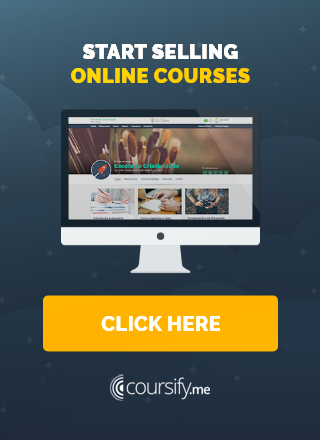10 Strategies to Promote and Market Your Podcast
Thinking of starting a podcast? In this post we’ll show you why this can be a great channel to add to your marketing campaigns and generate revenue for your business.

Why start a podcast?
According to recent data, there are around 1 million active podcasts in the world, available in multiple channels and languages.
A study carried out by Globo, in partnership with Ibope, shows that 57% of Brazilians started listening to podcasts during the pandemic.
“Podcasts create an intimate relationship with the public, and research comes to prove this by showing that more people have become interested in the format in the context of social isolation. Among the interviewees, reports of people who say they feel part of the conversation on the programs are common and, therefore, feel less alone. Of the nearly 100 million Brazilians who consume some form of digital audio, 28 million already claim to listen to podcasts. This growing interest reinforces our commitment to this segment”, emphasizes Guilherme Figueiredo, Globo’s Head of Digital Audio.
– How the pandemic changed education
Compared to the 37 million YouTube channels that currently exist, this positions podcasting as an excellent marketing channel for your business as it faces less competition. In addition, podcast listeners are supposedly more educated and wealthy, with nearly half of the audience having a college degree.
For your company, this means a market able to value and recognize your expertise in your niche, while being more likely to spend on your products or services.
10 Excellent Podcast Marketing Strategies
Although there are far fewer podcast marketers than video marketers, the challenge of increasing the number of engaged listeners highly converting, still remains. So how do you successfully market a podcast to help grow your business? Let’s take a look at the top 10 strategies.
1. Distribute your podcast across multiple platforms
As the popularity of podcasting has grown, a number of platforms for streaming this media format have emerged. Some streaming services include Apple Podcasts, Pocket Casts, Deezer, SoundCloud and Spotify.
To ensure you’re reaching as many target customers as possible, publish your episodes on as many platforms as possible.
A simple way to do this is by using Anchor.fm, which automatically distributes your content to several different channels at once.
2. Optimize your content for SEO
Optimizing your podcast to search engines ensures that you reach more visitors and potential leads.
To do this, include in the title and episode description keywords that your target audience can use when searching for new podcasts.
– 12 practical SEO tips for beginners
3. Adapt content to different formats
After publishing your episodes, promote them on different platforms, redirecting your content. This not only allows you to reach a wider audience, but it also generates more content for your other channels, contributing to the SEO and your periodic updates.
Here are some ideas for repurposed podcast episodes:
- Turn interesting phrases and quotes into social media posts.
- Create a blog post about a podcast topic you’ve published.
- Make infographics that highlight the key points covered in your episodes.
- Cut full episodes into soundbites and post them as videos on social media.
4. Turn episodes into YouTube videos
While Google is currently implementing ways to make podcasts easier to find, it’s important to note that video still gains more prominence over audio content when a user types a certain phrase in seekers.
Therefore, unless the user enters “podcast” in their search, your material may not appear in the results. One way to make the most of Google’s video preference: Turn your podcasts into videos that you upload to YouTube.
– 5 ways to sell online courses using videos
5. Update your marketing via email
If you’ve already started build your mailing, make sure your audience knows about your podcast by adding a link to your program in their email messages.
Even if you send out newsletters that don’t promote new episodes, you can remind your users of that content using a dedicated button or section.
6. Mention other companies and entrepreneurs in your episodes
Do you want others to speak well of you? Start speaking well about others. Your business can be mentioned positively by notable people in your niche if you make yourself noticed and talk about them or their brand in your podcast.
Of course, this recommendation should be sincere and spontaneous, not sounding like a paid advertisement. That way, the person or brand mentioned may even decide to share the episode on their own channel.
7. Invite participants who add value
Over time, it’s interesting to invite people to your podcast who can add high value to your audience.
This is a win for everyone: you get audience access from your guests when they share their interviews on their network, your guests can reach your audience, and listeners get the chance to listen to extremely experienced people and learn more.
8. Give your guests promotional material
Make it as easy as possible for your guests to share the episode they participated in.
Share with them your social media posts, images, notes, and even outreach content that they can share on their own email or social media lists.
– How to create an email marketing campaign
9. Participate in other people’s podcasts (guest podcasting)
Try to participate in other people’s podcasts to expand your reach and increase your number of followers.
Here are some things you should prepare when making a sales pitch to join someone’s podcast:
- Suggestion of 1-2 topics you can talk about in your episode.
- Podcast hosts need to know why it’s worth inviting you. Show them your website, work, and link to any interview video or podcast you’ve done so they’ll have an idea of how you present yourself.
- Show your listener numbers, followers, engagement data and listeners testimonials .
Benefits of guest podcasting
There are several advantages to being a guest on someone’s podcast, but these are the three most important:
- Establishing your name as an expert
Guest podcasting is a marketing and public relations tactic to get you ahead of a new and bigger audience. It’s crucial if you’re a content creator looking to build a brand for the long term, and it’s one of the most effective ways to do this without having to pay anything.
Being a podcast guest can be more difficult than blogging on an authority site because “places” are limited. But even if the scene is more competitive, it offers a greater return. The fact that you have been chosen indicates that the host believes you have something of value to share.
Likewise, it will really help you establish your authority as a leader and expert in your field. Once you’ve joined an important podcast, you can add it to your website as social proof.
- Reaching new audiences
Another benefit of guest podcasting is reaching new audiences that you wouldn’t otherwise be able to.
Starting a podcast can be expensive and time-consuming, and not every content creator is ready to add an extra platform to what they’re already doing. However, being invited is completely free and requires a minimum investment of time.
Likewise, if you have your own podcast, you have the added benefit of trading (you go to someone else’s podcast and then they go to yours). This allows you to reach new audiences and expand your business.
- Publicize your business
Podcast episodes typically last about 40 minutes. And, according to research, people are more likely to stick to the end and be more involved than if they were consuming content in any other way.
This provides a great window to connect with your audience. Plus, you get the chance to invite people to check out what you have to offer when they’re done listening to the episode.
10. Always ask for a rating
As your podcast grows, encourage new listeners to leave a rating on each episode.
Explain how leaving a review, compliment, or simple comment will help your show get discovered by more people in your niche who need help, and even consider encouraging that engagement by hosting a contest or giveaway.
– Tips to Get More Reviews for Your Course
Podcast as a strategy to sell online courses

Now that you have all these outreach tips, focus on creating one of the best podcasts in your niche to get more leads and sales.
Remember that content comes first, so focus on producing high quality episodes first. Once you’ve done that, you can be confident that the ROI of your marketing strategy scales itself.
It is recommended that recordings do not last for hours, with a maximum duration of 40 to 50 minutes, in order not to lose the listener’s attention and concentration.
In the case of online courses, if the episode is necessarily long, a good alternative is to break it into parts, which encourages the student to continue with the classes.
Remember to constantly check the sound quality while recording. Currently there are numerous free software that help very well with this function.
– 12 apps for recording quality video
Finally, upload your podcast to the platform on which your online course is hosted. If you use Coursify.me, this process is quite simple, just upload the material directly from your computer, Dropbox or any other place where it is saved.
Complete Learning Management System (LMS), Coursify.me has all the resources you need to create and sell online courses.
Serving companies and professionals in more than 60 countries, Coursify.me is a dynamic and customizable eLearning platform.
We have three plan options for you to decide which one best suits your needs. Visit our website, test the platform and start creating and selling online courses right now.

